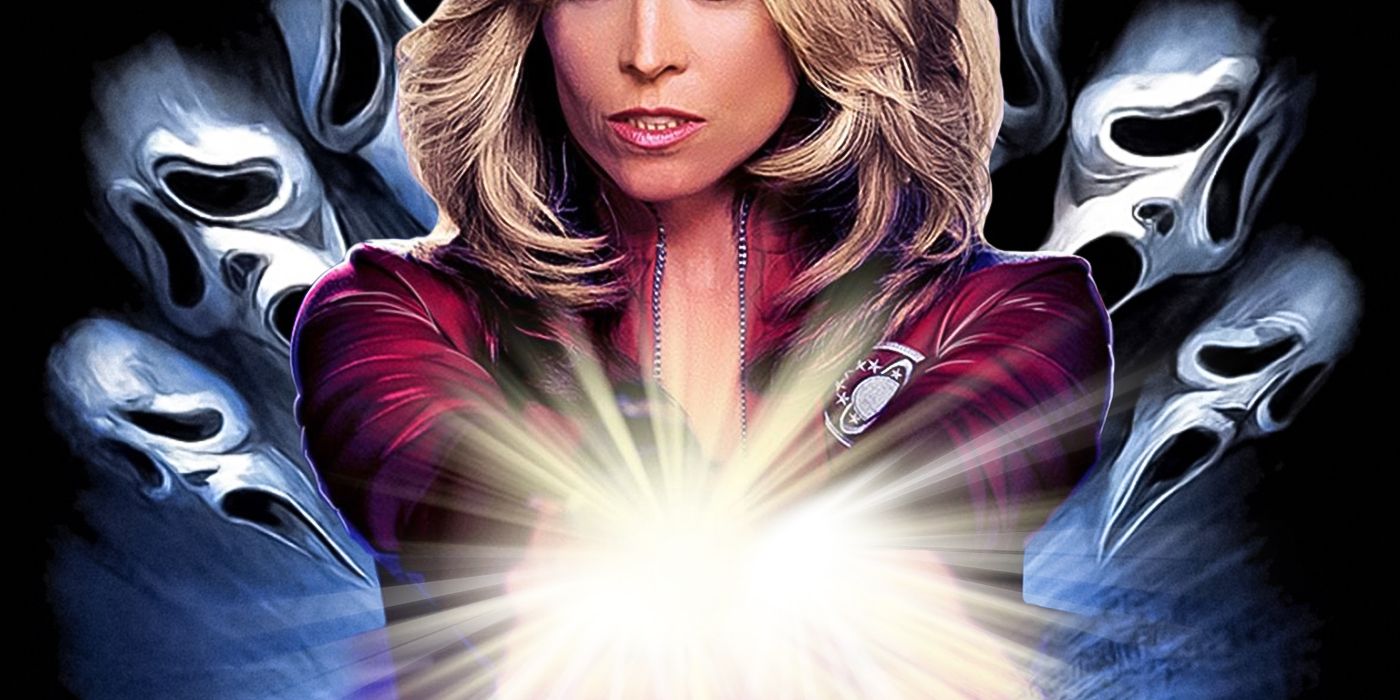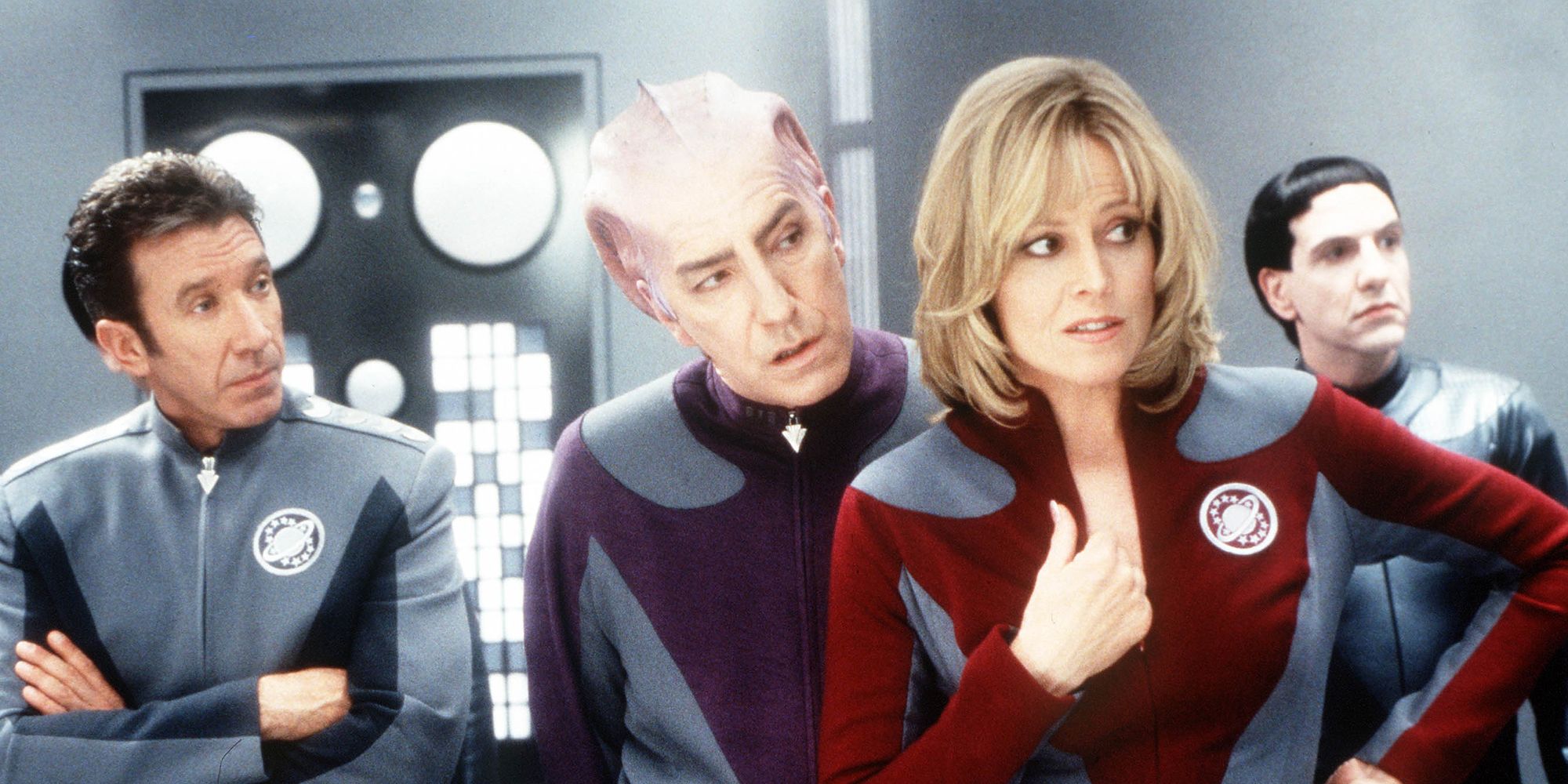Galaxy Quest is a unique sci-fi movie and one of the most beloved ever made. It is in one sense a spoof sci-fi movie: meant to be a send-up of Star Trek and similar space franchises. Starring Tim Allen, Sigourney Weaver, and Alan Rickman, the '90s classic's plot follows an intrepid band of actors from a once-popular campy sci-fi series, now circling the drain in their acting careers. When aliens with no sense of fiction mistake their old show, titled Galaxy Quest like the film itself, for a historical documentary, the aliens enlist the aging actors to lead them in an interstellar war. A delightful “fish out of water” story follows with the Hollywood actors desperately trying to channel their fictional selves to solve their real-world crisis. Shenanigans, naturally, ensue.
What Makes 'Galaxy Quest' a Pitch-Perfect Sci-Fi Comedy?
Of course, part of what makes Galaxy Quest fun is the pitch-perfect accuracy of its genre send-ups: Tim Allen as the “captain,” whose insufferable self-centeredness rubs his crew the wrong way backstage; Alan Rickman as a type of Leonard Nimoy character fed up with the fact that he plays second fiddle to the captain and is an accomplished dramatic actor who is only known for a stupid role as a science officer in a sci-fi series; Sigourney Weaver being cast delightfully against type, not as the sci-fi action hero she was in the Alien franchise, but as a parody of another typical sci-fi role: the woman who is cast for her looks and whose only job in the series is to repeat what the computer says. There is even a delightful terrified monologue from Sam Rockwell, who is convinced that, as the redshirt character is known only as “Guy” on the TV show, he will be the first one to die to prove that the stakes are serious.
As on-point as the genre satire is, however, that is not what makes Galaxy Quest unique. There are plenty of fun satirical sci-fi movies, but Galaxy Quest is not simply a straight satire or comedy. It also has a very heartfelt ending about people setting aside their differences to work together to defeat an imposing enemy. There is a wish-fulfillment turn of the plot at the end that hinges upon all the abstract nerd knowledge of a group of superfans finally having a practical use. Alan Rickman’s character discovers the power and significance of the catchphrase he used to dismiss as campy and beneath him. Tim Allen channels the cheesy heroism of his character in a delightfully honest way. In short, while it pulls no punches in making fun of the genre, ultimately it is still somehow also an excellent genre movie, hitting all the notes that a good sci-fi story does along the way.
What Do 'Galaxy Quest' and 'Scream' Have in Common?
It is that last aspect that separates it from any other sci-fi movie that Galaxy Quest could be compared to. There are good sci-fi comedies, but precious few are also good sci-fi genre movies at the same time. The best analogy to the unique character of Galaxy Quest, then, is not another sci-fi movie, but another genre entirely. Galaxy Quest is to sci-fi what the original Scream is to horror movies.
The thing that sets Scream apart from its counterparts is almost exactly the same thing that Galaxy Quest does so well: it manages to work as a send-up of its genre simultaneously and as an excellent genre movie. The classic example of this is when Jamie Kennedy as Randy proclaims his monologue about the rules of surviving a horror movie (right in the middle of a horror movie), or when Kenny (W. Earl Brown) complains about the horror trope that the endangered person never looks behind them — in the very moment that the Ghostface killer is stalking up behind him.
But just as with Galaxy Quest, Scream does not ultimately come off as a comedy, either. There are plenty of tongue-in-cheek references in both, but perhaps the most significant thing that both movies do is that they do not allow the comedy to subvert the ending. While there are plenty of jokes about classic lazy horror tropes in Scream, the end is still terrifying and chilling. And while there are the same sorts of genre send-ups in Galaxy Quest, its ending is still just as heartwarming and inspiring as the best sci-fi movies can be. It is not the most obvious comparison to make, but each movie does to its genre the sort of things that best friends do: they can crack jokes at the other’s expense, but in the end, they still have an unshakable loyalty to that person. Just like the best of friends, these movies see their genre’s flaws — and love them the more for it.


